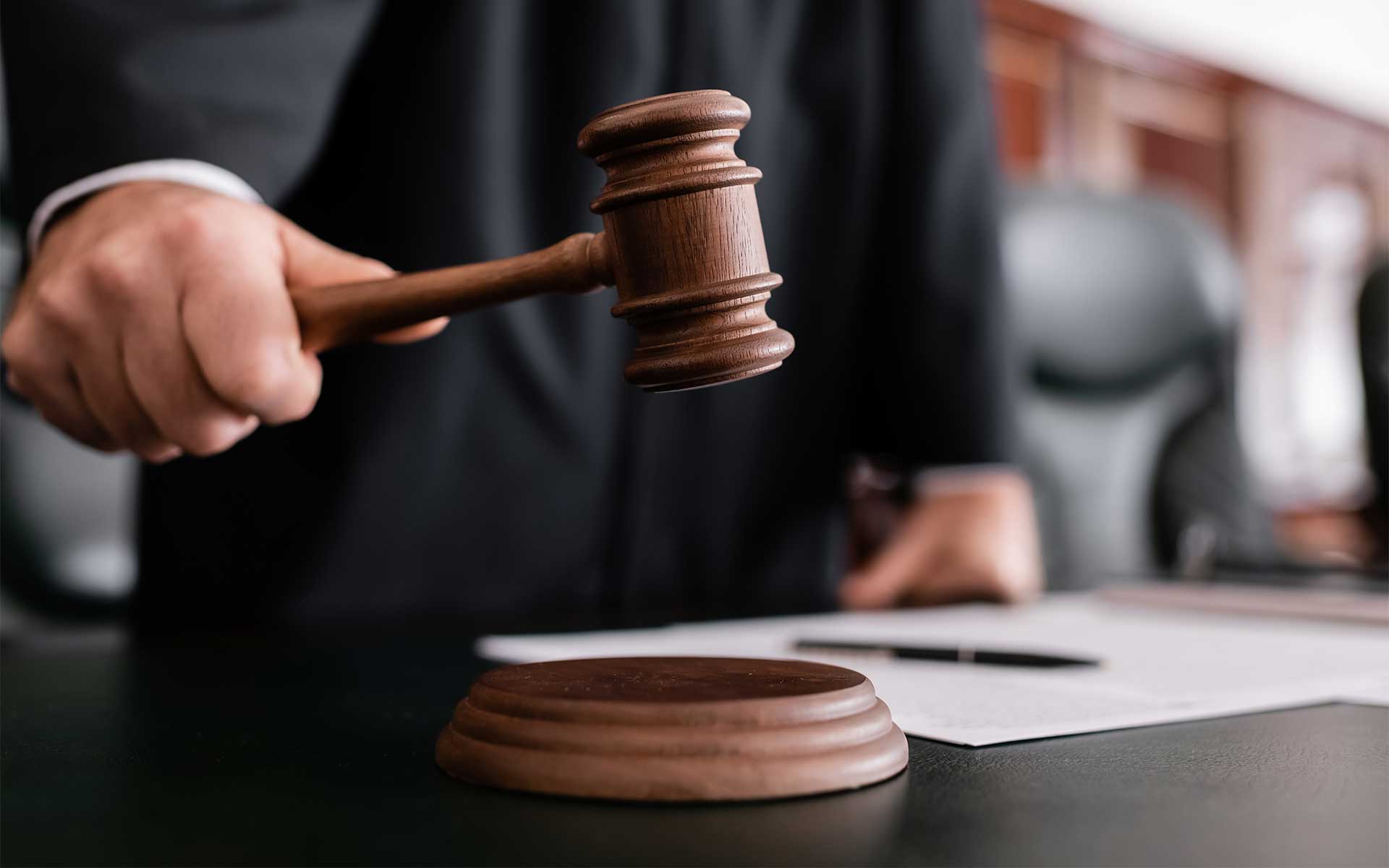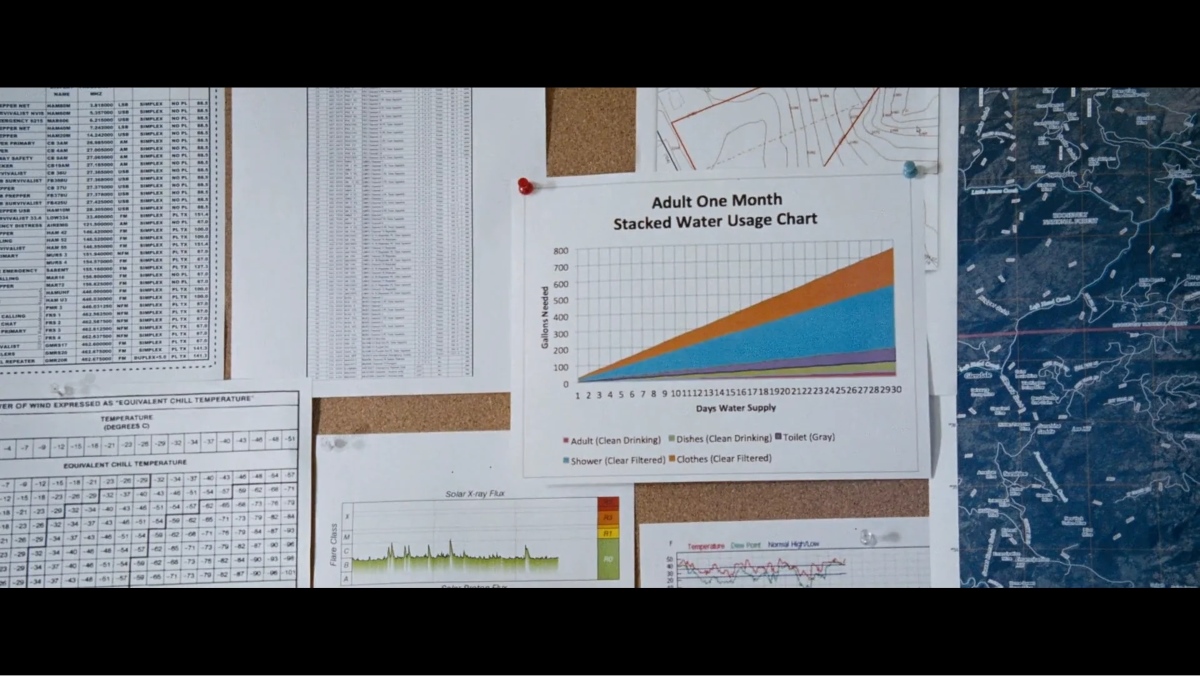Home>Finance>What Happens If I Don’t Get Served To Appear In Court On A Credit Default Case


Finance
What Happens If I Don’t Get Served To Appear In Court On A Credit Default Case
Published: March 4, 2024
Find out the consequences of not being served to appear in court for a credit default case. Understand the financial implications and legal outcomes. Get expert advice on managing finance-related legal matters.
(Many of the links in this article redirect to a specific reviewed product. Your purchase of these products through affiliate links helps to generate commission for LiveWell, at no extra cost. Learn more)
Table of Contents
Introduction
Navigating the legal intricacies of a credit default case can be daunting, especially when faced with the prospect of being served to appear in court. The consequences of ignoring such a summons can have far-reaching implications on your financial well-being and credit standing. Understanding the potential outcomes of failing to respond to a credit default case is crucial for making informed decisions and taking proactive steps to address the situation.
In this comprehensive guide, we will delve into the repercussions of not appearing in court on a credit default case and explore the steps you can take to mitigate the impact. Whether you've received a summons or are concerned about the potential ramifications of missing a court date, this article aims to provide valuable insights to help you navigate this challenging process.
It's essential to approach this matter with a clear understanding of the potential consequences and the available courses of action. By shedding light on the implications of failing to respond to a credit default case, we aim to empower individuals to make informed decisions and take proactive measures to protect their financial interests. Let's delve into the details to gain a comprehensive understanding of the potential outcomes and steps to take in the event of missing a court date in a credit default case.
Understanding the Consequences of Not Appearing in Court
When faced with a credit default case, the prospect of not appearing in court can have significant ramifications. Ignoring a summons to appear in court can result in a default judgment being entered against you. This judgment could lead to various legal and financial repercussions, including wage garnishment, asset seizure, and a negative impact on your credit score.
By failing to appear in court, you risk forfeiting the opportunity to present your case and defend your interests. This can result in the court ruling in favor of the plaintiff by default, potentially leading to a legally binding judgment against you. Such a judgment could empower the plaintiff to pursue aggressive measures to collect the debt, placing your financial stability at risk.
Moreover, the issuance of a default judgment can tarnish your credit history, making it challenging to secure loans, mortgages, or lines of credit in the future. The negative impact on your credit score could endure for an extended period, affecting your financial prospects and limiting your access to essential financial services.
Understanding the potential consequences of not appearing in court is crucial for making informed decisions and taking proactive steps to address the situation. By recognizing the gravity of failing to respond to a credit default case, individuals can seek appropriate legal counsel and explore viable options to protect their financial well-being.
Potential Outcomes of Failing to Respond to a Credit Default Case
When an individual fails to respond to a credit default case and does not appear in court, several potential outcomes may unfold, each carrying significant implications. One of the primary consequences is the issuance of a default judgment in favor of the plaintiff. This judgment can empower the plaintiff to pursue legal avenues to collect the outstanding debt, potentially leading to wage garnishment or asset seizure.
Furthermore, a default judgment can have enduring effects on the individual’s credit standing. It may result in the entry of a negative mark on their credit report, impacting their ability to secure future credit and potentially leading to higher interest rates on loans and credit cards. The long-term financial repercussions of a default judgment underscore the importance of addressing a credit default case in a timely and informed manner.
Another potential outcome of failing to respond to a credit default case is the accrual of additional legal costs and fees. By neglecting to address the summons and court proceedings, individuals may find themselves liable for additional expenses associated with the legal process. These costs can further exacerbate the financial burden stemming from the underlying debt, underscoring the importance of actively engaging with the legal proceedings.
Moreover, the absence of a timely response to a credit default case can lead to heightened stress and anxiety for the individual involved. The uncertainty surrounding the potential outcomes and the looming specter of legal action can take a toll on one’s mental and emotional well-being, emphasizing the importance of seeking clarity and taking proactive steps to address the situation.
Understanding the potential outcomes of failing to respond to a credit default case is essential for individuals facing such circumstances. By recognizing the gravity of the situation and the potential ramifications of inaction, individuals can seek appropriate legal guidance and explore avenues to address the credit default case in a strategic and informed manner.
Steps to Take If You Miss Your Court Date
If you find yourself in the unsettling scenario of missing your court date for a credit default case, it’s crucial to take immediate and strategic steps to address the situation. Prompt action can help mitigate the potential repercussions and provide an opportunity to rectify the oversight. Here are essential steps to consider:
- Contact the Court: Upon realizing that you have missed your court date, promptly contact the court to explain the situation. Express your willingness to address the matter and inquire about the necessary steps to rectify the missed appearance. Courteously communicating with court officials can demonstrate your commitment to resolving the issue.
- Seek Legal Counsel: It’s advisable to seek legal guidance from an attorney experienced in handling credit default cases. A legal professional can provide invaluable insights, assess your options, and guide you through the necessary procedures to address the missed court date and mitigate potential repercussions.
- Prepare a Valid Explanation: When communicating with the court or legal representatives, ensure that you have a valid and documented explanation for missing the court date. Whether it’s due to an unforeseen emergency, a scheduling conflict, or another compelling reason, articulating a clear and truthful account of the circumstances can strengthen your position.
- Respond to Correspondence: Stay attentive to any correspondence from the court or the plaintiff’s legal representation. Timely and proactive communication can demonstrate your commitment to addressing the situation and may provide opportunities to resolve the matter amicably.
- Explore Settlement Options: Depending on the specific details of the case, consider exploring settlement options with the plaintiff. Engaging in constructive dialogue aimed at reaching a mutually agreeable resolution can help mitigate the potential impact of missing the court date.
By taking these proactive steps, individuals who have missed their court date in a credit default case can demonstrate a genuine commitment to addressing the situation and mitigating potential repercussions. Seeking legal guidance, maintaining open communication, and approaching the matter with diligence can pave the way for a strategic and informed resolution.
Conclusion
Addressing a credit default case and the prospect of missing a court appearance can evoke feelings of uncertainty and concern. However, by gaining a comprehensive understanding of the potential consequences and taking proactive steps, individuals can navigate this challenging terrain with greater confidence and clarity.
Recognizing the gravity of failing to respond to a credit default case underscores the importance of seeking legal counsel and taking strategic measures to address the situation. Whether it involves promptly contacting the court, seeking legal guidance, or exploring settlement options, individuals can proactively engage with the legal proceedings to mitigate potential repercussions.
It’s crucial to approach the situation with a clear and documented explanation for missing the court date, as well as a willingness to address the matter in a constructive manner. Timely and proactive communication with the court and the plaintiff’s representatives can demonstrate a genuine commitment to resolving the issue and may present opportunities for an amicable resolution.
By taking these essential steps, individuals can assert their dedication to addressing the credit default case and mitigating potential legal and financial ramifications. Furthermore, seeking legal guidance from experienced professionals can provide invaluable insights and guidance throughout the process, empowering individuals to make informed decisions and protect their financial well-being.
Ultimately, understanding the potential outcomes of failing to respond to a credit default case and taking proactive measures can pave the way for a strategic and informed resolution. By approaching the situation with diligence, transparency, and a commitment to addressing the matter, individuals can navigate this challenging process with greater confidence and clarity.














